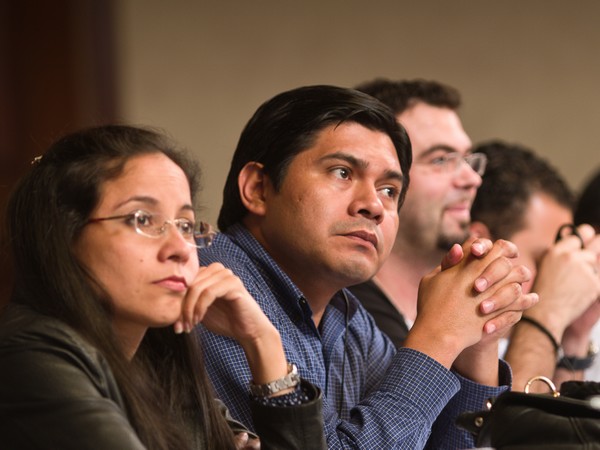Engaging people in peacebuilding and statebuilding - Why and how?

Interpeace’s International Peacebuilding Advisory Team (IPAT) will host a one-day training and learning event on citizen engagement in peacebuilding on 26 November. The event will be an opportunity to learn about practical ways to operationalize important aspects of Sustainable Development Goal 16: Promoting Just, Peaceful and Inclusive Societies.
The mechanisms for citizen participation in established democracies do not always exist – or are not as robust – in countries attempting to emerge from conflict. State institutions are often significantly weakened and lacking in the public’s trust, while society itself may have a yet-to-be developed sense of “citizenship”.
In such contexts efforts to create meaningful public participation can have multiple benefits. They can:
- Help ensure that peace agreements serve the wider public rather than elite interests;
- Generate a direct experience of “citizenship”, contributing to a deeper understanding of what this means;
- Help build – or rebuild – a healthy governance relationship between citizens and the state;
- Lead to broader public “ownership” of statebuilding processes, such as support for new or amended policies and institutional reform plans and their implementation.
Yet the prevailing practices are not necessarily conducive to enabling greater public participation and citizen engagement. Mediation efforts tend to concentrate on the powerful elite players while other international actors work with national civil society groups that are not necessarily representative of the wider population.
From more than 20 years of experience in peacebuilding, we know that peace cannot be imported from the outside and that it must be built from within a society. This is why Interpeace tailors its approach to each society and ensures that the work is locally driven. Interpeace believes that every society has what it needs to build peace. Our role is to support societies to harness their strengths. Together with local partners, we jointly develop peacebuilding programmes. We help to establish inclusive processes of change that connect local communities, civil society, government and the international community through our Track 6 approach.
The course
This one day training course draws on Interpeace’s experience with inclusive peacebuilding but will also create space for participants to share their experiences and engage in peer learning.
Throughout the day we will make use of inputs, group work, case examples and video clips that illustrate public participation on issues that matter, in various peacebuilding and statebuilding contexts.
Key questions that we will explore during the day will be:
- Why is public participation and citizen engagement important?
- What are constraining and enabling conditions for people in the societies we seek to support, to meaningfully participate?
- What are the constraining and enabling conditions in our international cooperation practices with regard to greater meaningful public participation and citizen engagement?
- What methodological approaches are there for public participation and citizen engagement to take place (qualitative and quantitative)?
- What does “inclusiveness” mean in practical terms?
- How can we increase the probability that public participation and citizen engagement have actual influence on policy choice and political decisions?
- What are we already doing well in our current practice(s) and what can we do better, to enhance meaningful public participation?
Event details
When and Where: Thursday 26 November at the Interpeace Office, Maison de la Paix, Geneva.
Sessions will run from 9.30-12.45 and 14.00-17.45.
Main course facilitator: Koenraad Van Brabant, Senior Peacebuilding Adviser
Main working language: English
Cost: CHF 85 per person, for the one-day training. This includes the course fee and coffee and tea but snacks or lunch are not provided. Though there is time out over lunch, this is a full day event and participants are expected to be present during both morning and afternoon sessions.
Applications to: ipat@interpeace.org with mention ‘citizen engagement course’. Acceptance to the course is on a first come, first served basis – acceptance is confirmed by payment in advance of the course fee to Interpeace
IBAN CH88 0027 9279 2135 5200 G;
SWIFT UBSWCHZH80A
